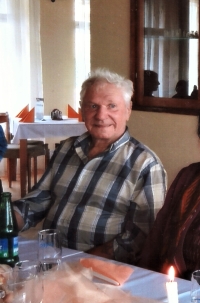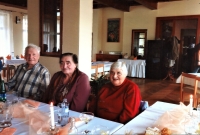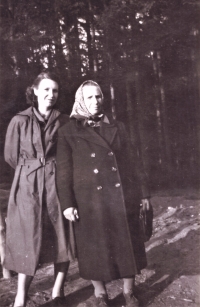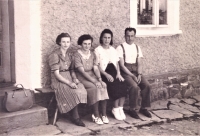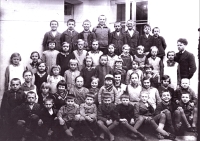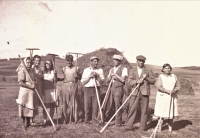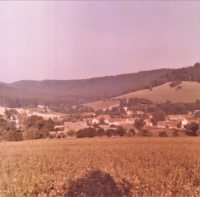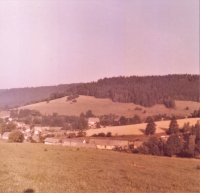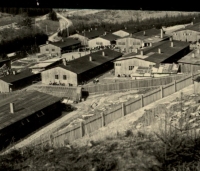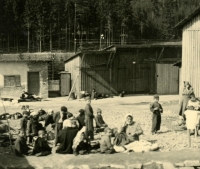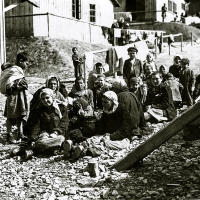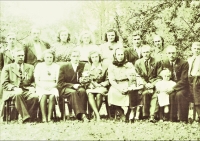I have gunpowder embedded in my back to this day

Download image
Josef Švancara was born in Hodonín near Kunštát on 22 September 1934 as the third child to parents Marie Švancarová and Josef Švancara. A penal colony was situated near their house, and from 1942, it was the protectorate’s ‘gypsy camp’ that, according to the available resources, concentrated more than 1,300 men, women and children of predominantly Romany origins from Moravia. The witness saw with his own eyes the suffering of all the prisoners, mainly children, and he often shared his lunch with them. He also saw deportations of Romany people to concentration camps. Towards the end of the war, he witnessed several dangerous situations that involved careless handling of discarded ammunition, poor treatment of German prisoners, and their march to Brno. The witness completed a vocational school as a bricklayer, but could not complete the next school because his father died. Following a conflict with the secretary of the Local National Committee (MNV), he was forced to join the Auxiliary Technical Battalion (PTP) for his military service in 1954. He was involved in building the new town of Havířov and then worked in the Antonín Zápotocký mine in Orlová. In 1956, he witnessed a mine cave-in that took the life of one miner. Having returned from his military service, he married Marie Pajgrtová in 1957 and two children were born to them, daughter Marie (1957) and son Josef (1961). The witness worked as a bricklayer at Průmstav Brno, taking part in the construction of the hospital in Boskovice, and suffered a severe work-related injury after falling from the roof while building the town spa. Afterwards, he was employed by the farming cooperative (JZD) in Hodonín as the head of the construction group. He personally attended the celebratory service in St. Vitus Cathedral on 25 November 1989 on the occasion of the canonisation of St Agnes of Bohemia. He retired in disability pension in 1991. All his life, he has been an active person: as a bricklayer, he helped build several houses and completely remodelled his own; he loved horse riding and raced in show jumping. He was living in his house in Hodonín near Kunštát in 2022.
